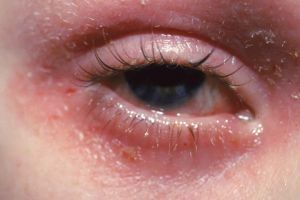Eczema Diagnosis
Eczema Diagnosis
Everything you need to know
about Eczema Diagnosis
Is your rash red and irritating because of eczema? Your doctor will ask you a series of questions to enable an eczema diagnosis.
Eczema (also known as atopic dermatitis) is a chronic skin condition that flares up on occasion. It’s possible that specific triggers cause yours to flare up.
Eczema can lead to:
- Your skin has dry, itchy spots
- Skin that is sensitive or irritated
- oozing or crusted-over patches
- Inflammation in the outbreak area
Eczema can cause mild to severe itching. Eczema patients may scrape their skin till it bleeds.
Make an appointment with your doctor if you suspect you have eczema. Write down when and what seems to trigger your outbreaks before your appointment. Bring your notes to your appointment and tell your doctor about them.
If you suspect food is the source of a rash on your child’s skin, tell the doctor and ask about recognising possible food allergies.
The doctor will check your skin and perhaps administer tests during your session. Here’s what to anticipate:
Physical Exam and Medical History
Your doctor will first examine your skin and review your medical history.
Your doctor might inquire:
- When, where, and how often do you get itching patches?
- Do you suffer from hay fever or are you sensitive to pet dander or hair?
- Do you have skin breakouts when you’re under a lot of stress?
- Do rashes appear if your skin comes into contact with something irritating, such as scratchy clothing or cleaning products?
- Do you get flare-ups when your skin is dry, or when the weather is extremely dry, hot, or cold?
Possible Tests to Rule Out Other Problems
Eczema can be diagnosed without a lab test by your doctor. A simple skin examination and assessment of your medical history should suffice. If your doctor isn’t sure if eczema is the source of your skin problem, he or she may order tests to rule out or diagnose anything else, such as allergies. To check if particular allergy triggers induce a reaction on your skin, doctors employ skin patches or skin prick testing. You may also need testing to rule out any underlying problems that are causing your eczema.
After Your Eczema Diagnosis
Eczema has no cure, but once your doctor has your eczema diagnosis, they can advise you on how to treat and manage it on your own. They might advise you to:
- You should not scratch your skin
- To relieve itching, apply a steroid or antihistamine cream
- Several times a day, moisturise your skin
- Soak your skin in a warm bath with colloidal oatmeal or baking soda
- Showers and baths should be shorter. Check to see if the water is too hot
- Keep your fingernails nice and trimmed. Scratching your itchy regions can help you avoid injuring your skin
You might be given a prescription for itch relief and skin calming medications. If you require more specialist testing or treatments, your doctor may recommend you to a dermatologist or allergist.


